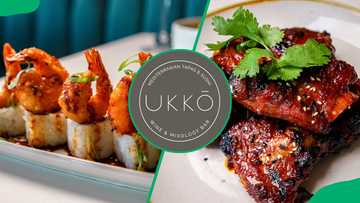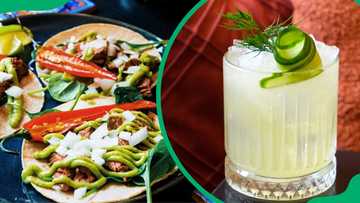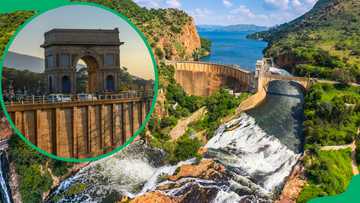A guide to the most expensive coffee beans, their origins and flavors
Coffee is one of the most universally loved drinks, with an estimated 2.25 billion cups consumed worldwide daily. Coffee-lovers are always seeking the best cup of Joe, and the most expensive options, such as Kopi Luwak and Jamaican Blue Mountain, are amongst the most prestigious.
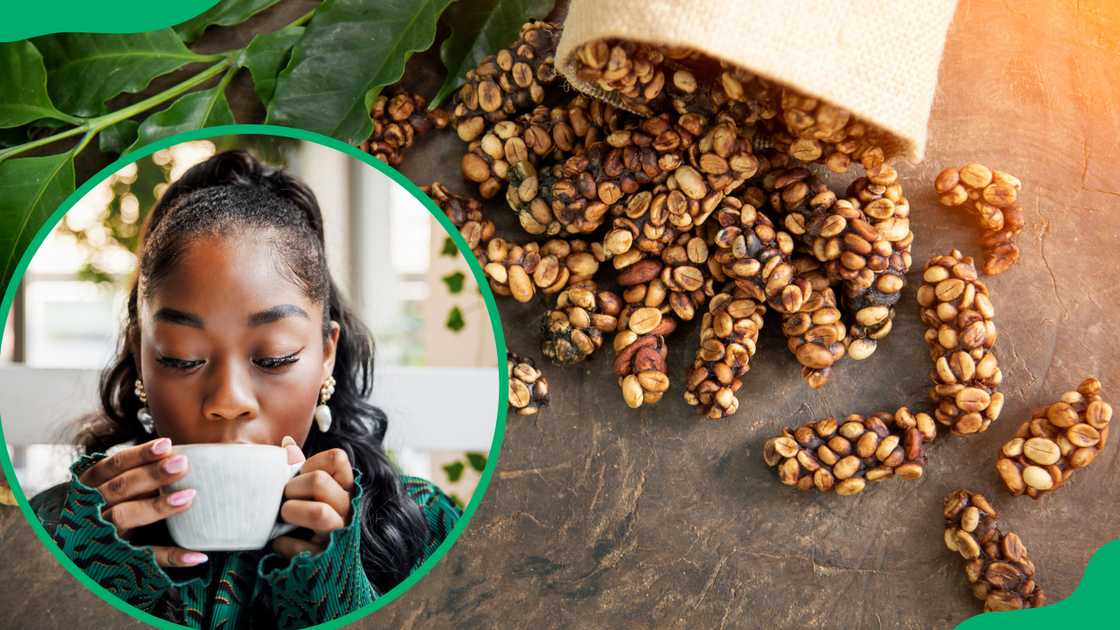
Source: Getty Images
TABLE OF CONTENTS
Key takeaways
- In South Africa, an estimated 21.7 million citizens begin their day with a delicious cup of coffee.
- The most expensive coffee beans are determined based on their location, climate, production costs, and supply and demand.
- Brands such as Kopi Luwak, Jamaican Blue Mountain, and Yemeni coffee is frequently included in the most expensive international coffee lists.
What is the world's most expensive coffee?
Sources such as Espresso International and Coffeeness report the following coffee beans as being globally renowned for their exclusivity, taste, and high price tag:
Kopi Luwak (civet coffee)
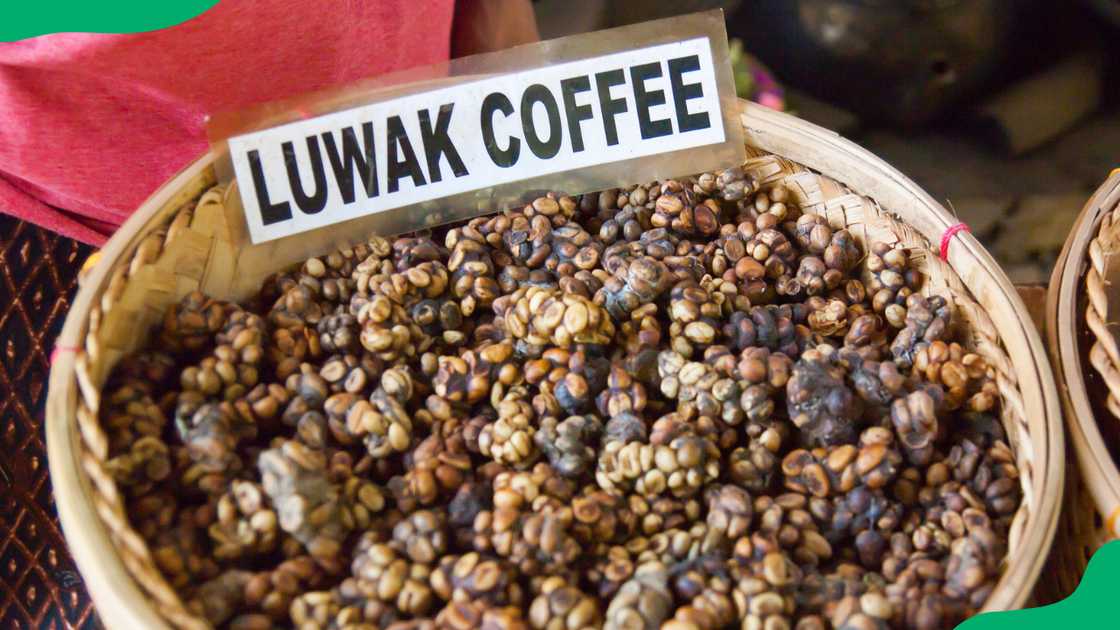
Source: Getty Images
- Origin: Indonesia (Sumatra, Java, and Sulawesi islands)
- Price: R895 (250 g)
- Flavour profile: Earthy, smooth, lightly sweet (hints of caramel and chocolate notes)
Kopi Luwak is so expensive as it is an 'animal poop coffee', with the Asian Palm Civet playing an intergral role in production. Civets eat and excrete the beans, with a natural fermentation process occurring during digestion. One cup of Kopi Luwak costs between $20 (R354.25) and $100 (R1,771.26) per cup when store-bought.
Hawaiian Kona Peaberry
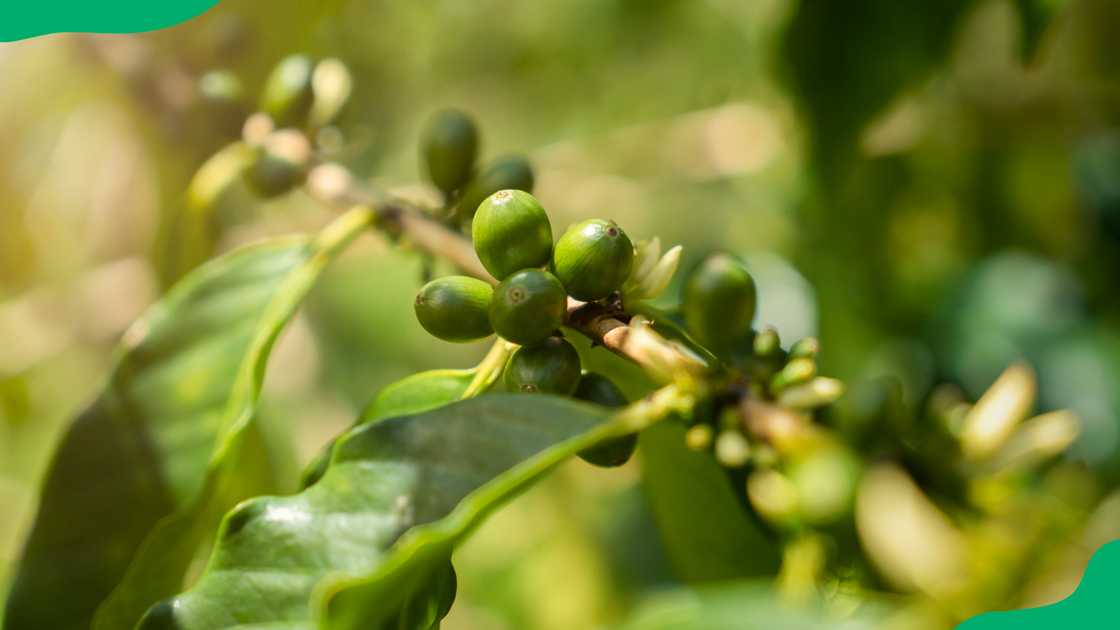
Source: Getty Images
- Origin: Hawaii
- Price: Between R495.91 and R4,693.45 (226.7 g to 2.2 kg)
- Flavour profile: Smooth, mild acidity, creamy (milk chocolate, caramel, nuts, vanilla, and citrus notes)
Hawaiian Kona Peaberry is grown within the 'Champagne coffee region', amongst the slopes of Hualalai and Mauna Loa. The high elevation and unique volcanic landscape produce the flavourful Hawaiian Kona Peaberry beans, which make up around 3% to 5% of the regional coffee harvest.
Black Ivory Coffee
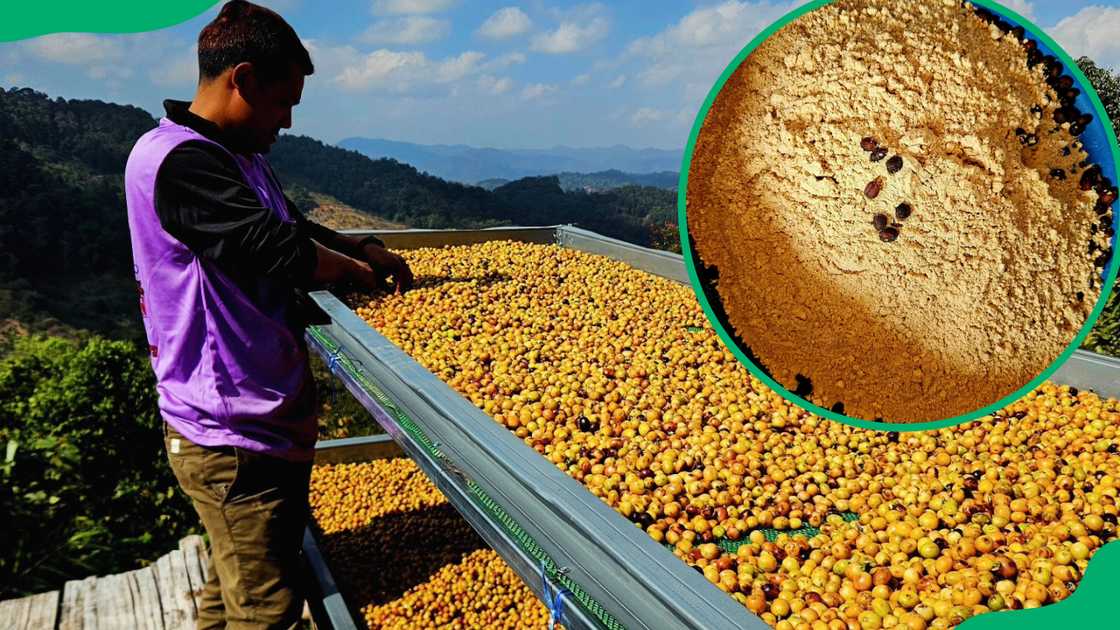
Source: UGC
- Origin: Thailand
- Price: R2,656.40 (40 g)
- Flavour profile: Smooth, creamy texture (chocolate, tamarind, spices and fruity notes)
Although known as elephant dung coffee, Black Ivory Coffee is a coffee brand that feeds Arabica coffee to elephants, which excrete them to create the highly sought-after beans. The distinct flavour is from the elephants' digestive enzymes, breaking down the coffee beans' protein to reveal a notably less bitter brew.
Jamaican Blue Mountain
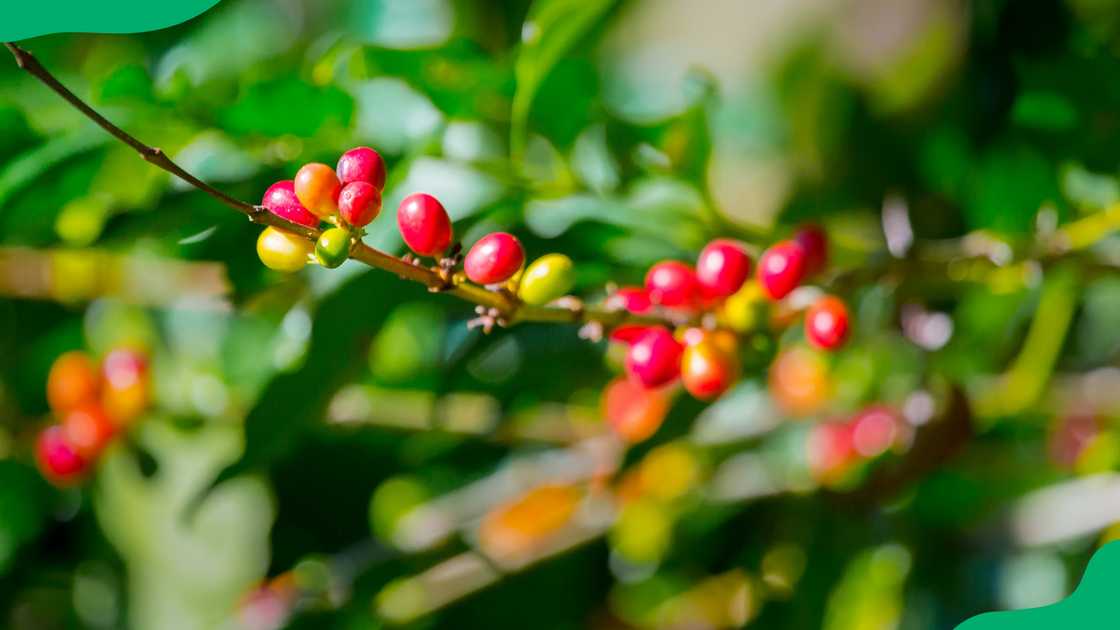
Source: Getty Images
- Origin: Jamaica (Saint Mary, Saint Andrew, Saint Thomas, and Portland parishes)
- Price: R796.03 to R1,327.31 (226.7 g to 453.5 g)
- Flavour profile: Bold, rich, sweet (nuts and chocolate notes, floral undertones)
Jamaican Blue Mountain is a high-end coffee brand grown in the Blue Mountains of Jamaica at altitudes from 3,000 to 5,500 feet. The exclusive geographical location and extensive process of selecting, wet processing, drying, and roasting create expensive and exclusive coffee beans with a distinct flavour.
Geisha coffee
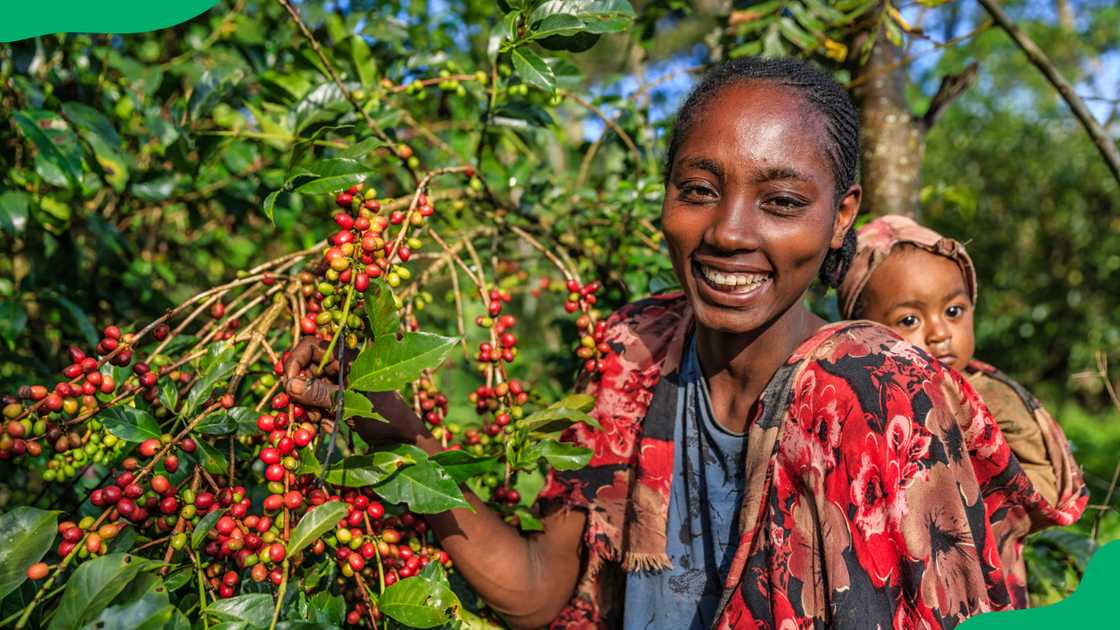
Source: Getty Images
- Origin: Ethiopia
- Price: R280 to R1,053 (250 g to 1 kg)
- Flavour profile: Floral, fruity (Jasmine and red berry notes with a tea-like quality)
Originating in the Gori Gesha forest of the developing African country Ethiopia, Geisha coffee is also grown in Africa, Asia, and the Americas. The coffee beans require specific climate conditions, altitudes, and fertile soils to create the flavour it is known for, increasing its price due to limited supply and high demand.
Yemeni coffee

Source: Getty Images
- Origin: Yemen (originally Ethiopia)
- Price: R2,667.63 (340.1 g)
- Flavour profile: Smooth, rich, bold (dried fruit, chocolate, and spicy notes)
Yemeni coffee is sought after thanks to its delightful sweet notes and high-quality, natural production. The coffee beans are farmed on terraced fields, with incredibly limited spacing, which impacts the price. Organic fertilisers from animal waste are used, delaying the production process and thus increasing the price.
St. Helena coffee

Source: Getty Images
- Origin: St. Helena (originally from Mocha, Yemen)
- Price: R3,834.10 (125 g)
- Flavour profile: Crisp, sweet, smooth (citrus, chocolate, and caramel notes)
St. Helena coffee is sought after thanks to its flavour, exclusivity, and historical association with Napoleon Bonaparte. This coffee is a pure strain, with no cross-fertilisation with other varieties. When Napoleon was exiled to St. Helena from 1815 until he died in 1821, he gave high praise to the local beans made on the small island, increasing its value.
What is the most luxurious coffee?
Most sources report Black Ivory Coffee and Kopi Luwak as the most sought-after luxury brands. The unique production of using an animal's digestive tract as a way to ferment the beans adds to the distinct flavour and high price.
Why are some coffee beans more expensive?
Rare coffees are expensive due to the following factors:
- Sourcing and processing: Coffee beans grown in unique or small geographical locations impact pricing, along with distinctive, intricate processes with higher production costs.
- Exclusivity and demand: Exclusive coffee beans are expensive due to limited production, and coffee beans that are farmed in unique ways, such as Black Ivory Coffee or Kopi Luwak, are more costly due to this.
The most expensive coffee beans largely depend on location, from high altitudes of the Blue Mountains of Jamaica to volcanic landscapes in Hawaii. The production process also plays an essential role in price, with Kopi Luwak and Black Ivory Coffee using animals to naturally ferment their unique coffee beans.
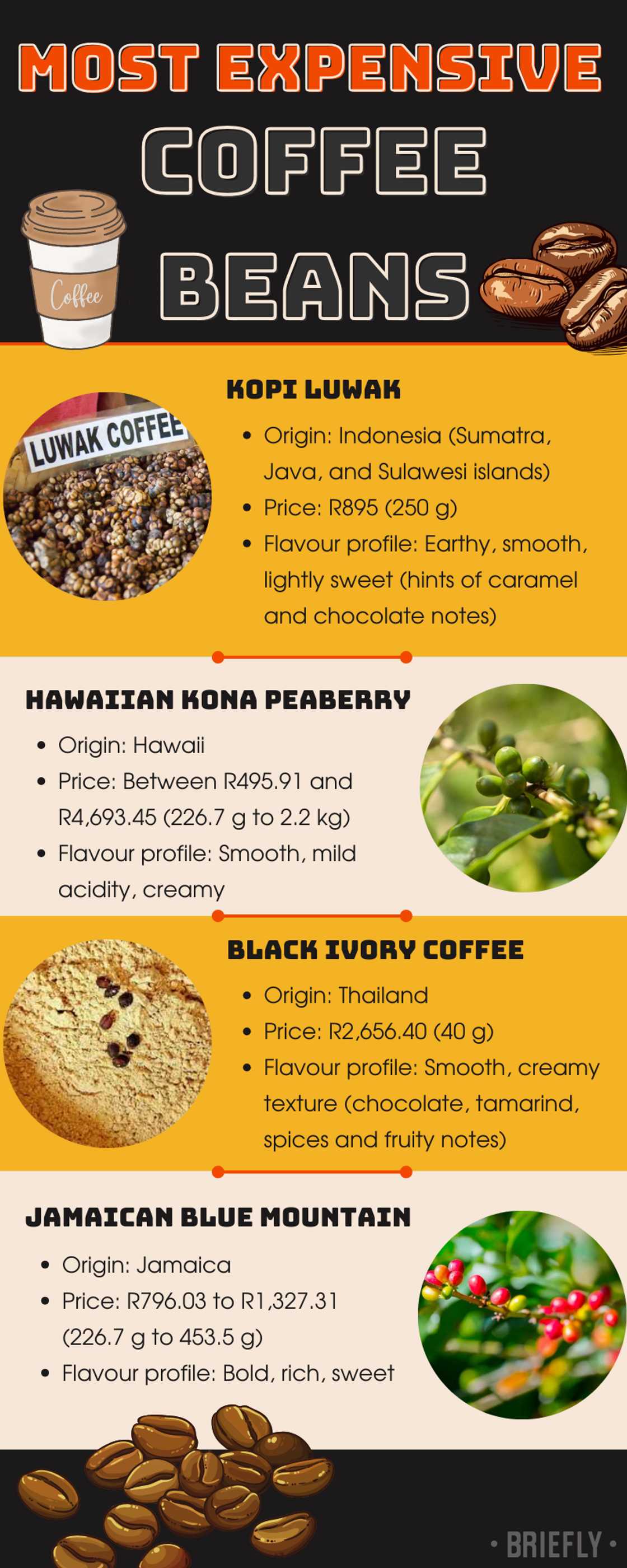
Source: Original
DISCLAIMER: This article is not sponsored by any third party. It is intended for general informational purposes only and does not address individual circumstances. It is not a substitute for professional advice or help and should not be relied on to make decisions of any kind. Any action you take upon the information presented in this article is strictly at your own risk and responsibility!
READ ALSO: Get the best coffee shops in Sandton: Top 10 list with images
Coffee lovers in Gauteng have a plethora of coffee shops to choose from. But, Briefly.co.za wrote about the best coffee spots in Africa's richest square mile in Africa for patrons to enjoy some of the best coffee available.
Although every eatery offers various coffee types to try, coffee shops offer exclusive coffee beans not typically found in commercial shops. You can also take home your favourite international coffee beans to sip on whenever you wish.
Source: Briefly News


